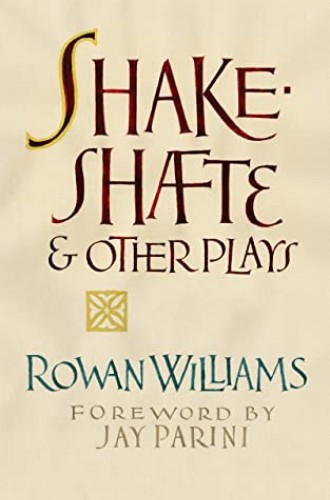Rowan Williams weaves theological reflection and poetry into drama
Shakeshafte and Other Plays explores the messiness of language and meaning.
Rowan Williams, theologian, poet, and former archbishop of Canterbury, knows from experience the limits of language in a flawed and fallen world. In his ten years as primus inter pares in the Anglican Communion, he struggled to keep fractious elements of a fraying ecclesial body in conversation. In his 2013 Gifford Lectures, later published as The Edge of Words, Williams described language as “indeterminate, incomplete, embodied . . . and interwoven with a silence,” concluding that our words are forever “‘in the wake’ of meaning, rather than owning and controlling it.”
Williams, who reportedly speaks or reads 11 languages, writes perceptively about the messiness of words, meaning, vocation, and commitment in Shakeshafte and Other Plays, a slim but substantive volume that weds his command of theological reflection and poetry in yet another genre: drama. Through dialogue ranging in diction from earthy to sublime, Williams’s characters embody what another Welsh poet and priest, R. S. Thomas, called, “the voices / of all those waiting at life’s / window,” each searching for purpose in troubled times.
In Shakeshafte, Williams draws on intriguing, if slender, historical evidence to imagine an episode in the life of William Shakespeare. Alexander Hoghton, a recusant Catholic landowner in Elizabethan-era Lancashire, included a bequest in his will to a certain William Shakeshafte, who appears to have provided “entertainments” while living in the wealthy man’s household. Further evidence suggests that Edmund Campion, a Catholic convert and Jesuit missionary traveling incognito to elude agents of the Tudor state, visited Hoghton’s residence shortly before his capture and brutal execution. Williams combines these evocative hints with rumors that a young Shakespeare worked as a tutor for a Catholic family in Lancashire and speculates on what Shakespeare—whom Williams believes harbored Catholic sympathies—and Campion would have said to each other had they met.





